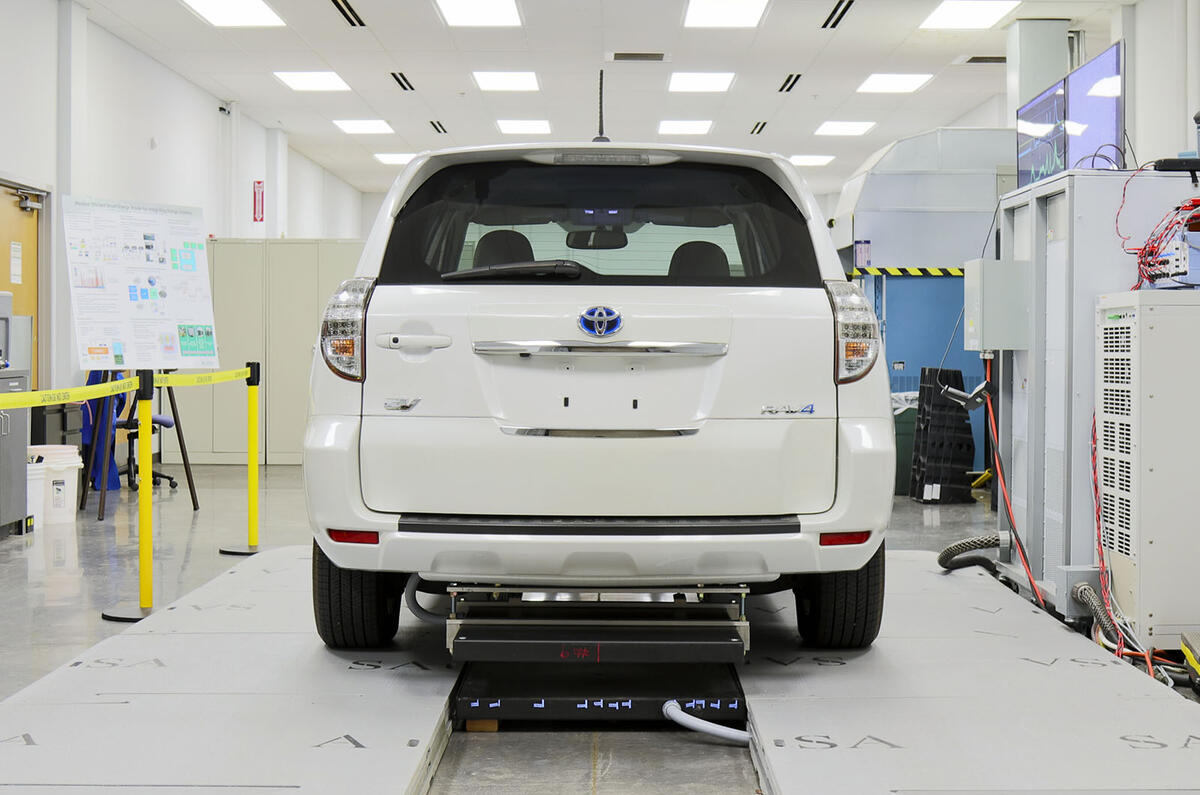A wireless charging system has been unveiled in the US that has the potential to match the power output of plug-powered fast-chargers and is capable of charging electric cars on the go.
The 20kW wireless charging system, which is already around three times faster than some plug-in alternatives, has been developed over the past three years by the government-backed Oak Ridge National Laboratory (ORNL) with Toyota, Cisco Systems, Clemson University and Evatran.
The system has been demonstrated with a Toyota RAV4 fitted with an additional 10kWh battery, with energy transferred from a transmitting plate in the ground to a receiving plate underneath the front of the car, from where it is then transferred to the battery.
“We now have a technology that is moving closer to being ready for the market,” said Madhu Chinthavali, ORNL power electronics team leader.
ORNL says its next target, along with developing the system’s ability to charge a vehicle in motion, is to up the system's output to produce 50kW, which would match the power of some plug-powered high-speed charging stations.
Wireless charging of electric vehicles in motion is something which is being developed with a focus on commercial vehicles rather than passenger cars, ORNL says.
Commercial EVs, such as buses, which travel on regular routes and stop at predetermined intervals, would benefit most from wireless charging systems integrated into the road, charging them on the move and also when stationary at bus stops.
The cost of implementing the system is a drawback to more widespread use, though, as it could cost up to $2 million (£1.4m) per mile to incorporate the system into roads, according to ORNL, and the system is still some years away from being implemented.
The institute, which benefited from vehicles and guidance from Toyota in the system's development, expects to reach its 50kW target this year, but it would take a minimum of a100kW system to make wireless charging viable for bigger commercial vehicles.
The fastest charging station currently is Tesla’s Supercharger, which is capable of delivering up to 120kW and an 80% charge in 30 minutes, while the slowest three-point plug 3kW chargers take around 6-8 hours to deliver a full charge.
Wireless charging systems are set to be tested in the UK, with the government committed to reducing CO2 emissions by 80% by 2050, and Nissan has outlined its plans to implement such a system for its cars.





Join the debate
Add your comment
Wireless electric car
Wasteful
As the article mentions, it's best used for making electric buses more practical for current battery tech. For the rest of us, better to stick to cables (or Tesla's freaky automated robot arm).
sounds pretty good to me.